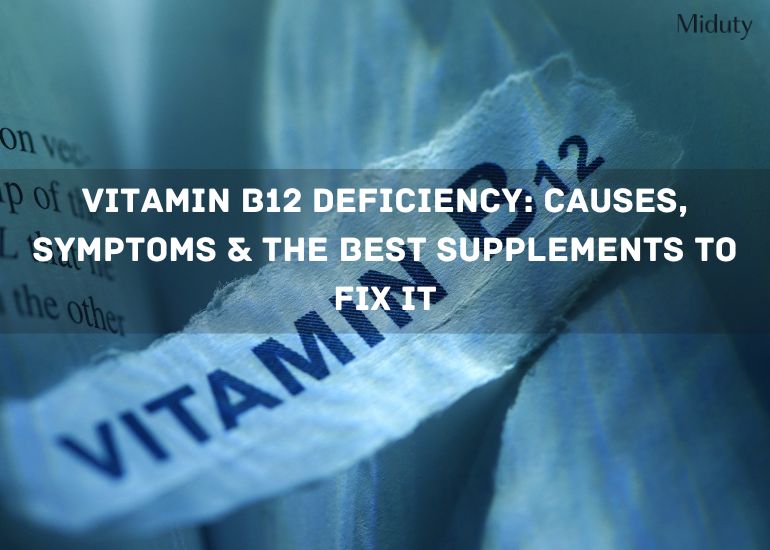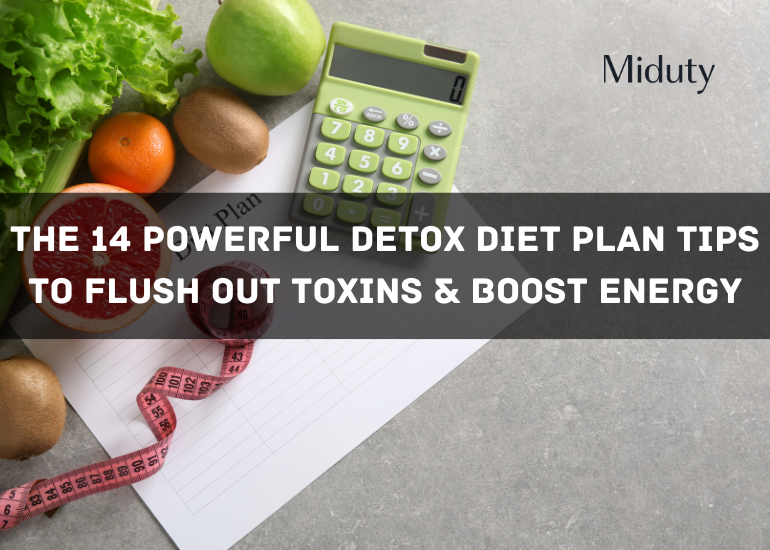
5 Iodine Rich Foods for Thyroid You Must Consume
5 Iodine Rich Foods for Thyroid You Must Consume
How Much Iodine Do You Need? | 5 Iodine Rich Foods You Should Consume for Thyroid | Signs of Iodine Deficiency | Do You Need Iodine Supplement? | How to Overcome Iodine Deficiency? | Conclusion | References

If you have hypothyroidism, you are probably aware of the significance of iodine in maintaining healthy thyroid function. Iodine is used by the thyroid gland to produce hormones that regulate various bodily functions such as metabolism, growth, and development.
Unfortunately, many people all over the world are deficient in iodine, which can result in hypothyroidism, a condition in which the thyroid gland does not produce enough hormones.
Have you ever wondered why Iodine deficiency is so common in India? This is because the soil in India is known for its total absence of iodine, leaving crops with completely inadequate iodine levels.
And the majority of Indians prefer a vegetarian diet [1] and rarely consume seafood, which is one of the best iodine-rich foods.
Hence, the main causes of iodine deficiency in India are a lack of iodized nutrition in soil and a general lack of awareness.[2]
Now, you must be thinking: How are Iodine Deficiency and Thyroid Dysfunction related to each other?
Iodine is a mineral that supports the thyroid gland in the production of the hormones that control the body functions. These hormones which are known as T3 and T4 hormones influence growth and development as well.
Our bodies do not produce iodine, so it must be obtained through diet.[3] And if you don't get enough of it, your body won't be able to produce thyroid hormones. If this occurs, the thyroid gland must work harder, causing the cells to multiply and eventually leading to swelling of the thyroid gland which is known as goiter.
It is important to consume enough iodine to maintain the thyroid functioning properly.
How Much Iodine Do You Need per Day for Thyroid ?
An average adult requires approximately 150 micrograms of iodine per day for thyroid, to keep a healthy and proper thyroid hormone production.However, if you're pregnant or breastfeeding then you can take up to 220-290 micrograms of iodine per day. [4]
Excess or deficiency of iodine in the body can both affect thyroid gland function and thyroid hormone production.
5 Iodine-Rich Foods for Thyroid You Should Consume
In this section, I'll go over some of the best iodine sources that you can easily incorporate into your diet to stay healthy.
1. Iodized Salt or Table SaltIodized salt is salt with trace amounts of sodium or potassium iodide. It's just regular salt sprayed with potassium iodide. It has the same appearance and flavor! The majority of table salt used today is iodized, which has numerous advantages and can be easily found in supermarkets or shops.
Iodized salt not only helps in boosting your thyroid function but is responsible for the removal of heavy metal toxins like lead and mercury from the body. It aids in restoring the pH of the body and also stops the growth of harmful bacteria in the intestines.
Iodine deficiency can be avoided by consuming 1/2 teaspoon of iodized salt per day.
A Word of Caution:Iodized salt also contains sodium, which can be harmful if you have high blood pressure. Doctors frequently advise people with high blood pressure to limit their intake of iodized salt. In this case, you can take to compensate for your iodine deficiency.
2. Greek YogurtThough the majority of the foods containing iodine come from the sea, products like greek yogurt also contain significant amounts of iodine. Because of its density, which increases iodine concentration, Greek yogurt is the best source of iodine.
225-gram serving of non-fat Greek yogurt contains approximately 116 mcg of iodine, which is approximately 75% of the daily minimum.[5]
3. FishFish is among the best iodine rich foods for thyroid. Cod fish is one of the best iodine-rich foods, with more iodine than any other fish. [6] Not only is cod an important source of lean protein, but a three-ounce serving of baked cod also contains 158 mcg of iodine, which meets your daily requirement.
Tuna is also a high-protein, low-calorie, iodine rich food for thyroid. Furthermore, it is high in potassium, iron, and B vitamins. Tuna is also high in omega-3 fatty acids, which may reduce your risk of heart disease. Tuna contains less iodine than leaner fish varieties such as cod because it is a fattier fish.
However, tuna is still a fairly decent source of iodine, with about 85 grams providing 17 mcg or about 11 percent of the total Recommended daily allowance.
4. EggsEggs are one of the commonly found iodine rich foods in households. One whole egg contains a good source of protein, good fats, and a variety of vitamins and minerals. The yolk contains the majority of the iodine in eggs. One large egg offers 16% of the recommended daily amount on average.
5. PrunesPrunes are basically dried plums. If you are a vegetarian, prunes may be one of the best sources of iodine for you. Prunes contain a variety of vitamins and nutrients, including vitamin K, vitamin A, potassium, and iron.
Five dried prunes provide at least 9% of your daily allowance. Besides that, prunes may greatly enhance heart health, lower the risk of developing colon cancer, and even help in weight management by suppressing appetite.
Signs of Iodine Deficiency
- Problems producing saliva and digesting food
- Dry Mouth
- Poor focus and Concentration
- Weakness and Muscle Pain
- Increased chances of Thyroid
- Developmental problems in babies and children
Now that you know the importance of iodine in maintaining thyroid function, let us discuss 5 foods containing iodine you must consume.
Do You Need An Iodine Supplement?
Consuming iodine through diet is the best way to get it however it may not be always possible. Why? Because of the tremendous amount of food, you would need to eat on a regular basis just to maintain your levels. But wait, there's more...
You must also consider personal tastes, food choices, special diets, and so on. When all of this is considered, it is actually quite difficult for some people to achieve even the low end of the recommended daily intake.
Also, cruciferous vegetables like broccoli, cauliflower, kale, and brussels sprouts have numerous health benefits. They are high in vitamins, minerals, and antioxidants, which can help to avoid the development of chronic diseases. However, these vegetables contain a compound called goitrogens, which can interfere with iodine absorption and potentially lead to hypothyroidism.
How to Overcome Iodine Deficiency?
By consuming Iodine-containing dietary supplements.
Triple Thyroid Care contains the most crucial mineral i.e. Iodine is derived from sea kelp and is known to serve as an effective thyroid treatment. It also contains a natural mixture of Ashwagandha, Selenium, and Zinc, which helps in the proper functioning of the thyroid gland in the body. Additionally, it also helps if you feel low on energy and are witnessing hair fall.
If you're taking Triple Thyroid Care to get relief from your thyroid symptoms, you get an adequate amount of iodine in your body. It is thus advised that you can eat cruciferous veggies once or twice a week after you properly boil or heat them.
Dosage of Triple Thyroid Care: Take 1 Capsule after Lunch and 1 Capsule after Dinner every day.
Conclusion
Iodine is an extremely important nutrient because it is actually needed for your thyroid to function. The Recommended Daily Dose of Iodine in Adults is 150 micrograms. Although you can consume foods high in iodine, it can be difficult to get as much iodine as you need from your diet. It is advised to take an iodine supplement to compensate for the iodine deficiency.

References








